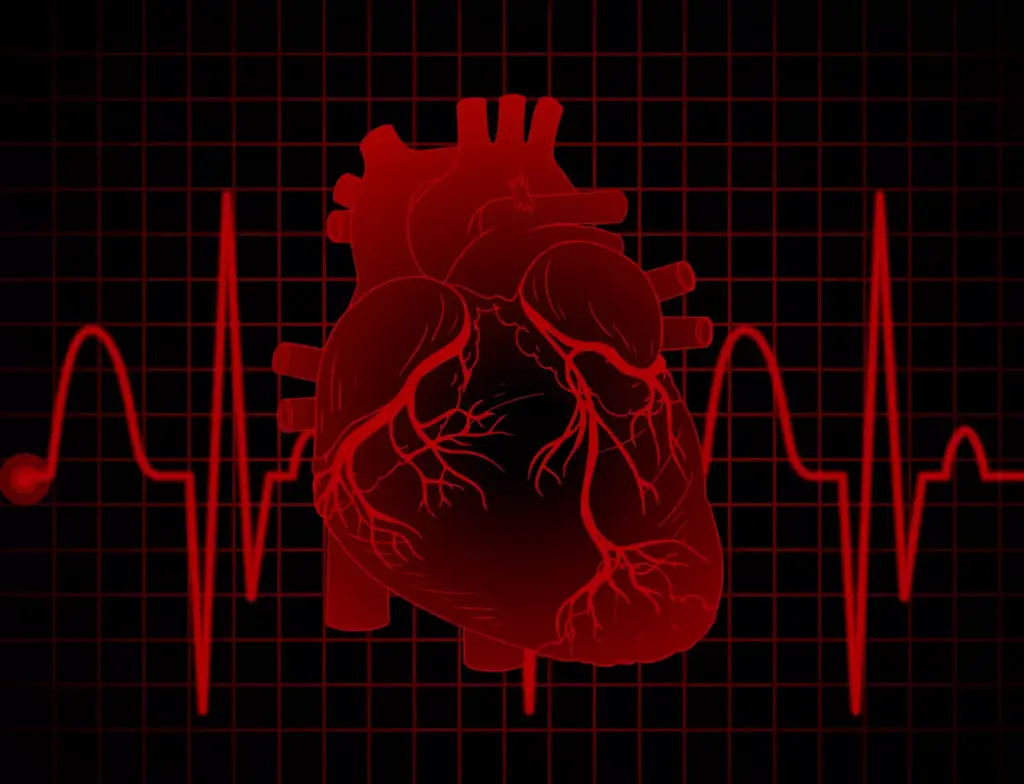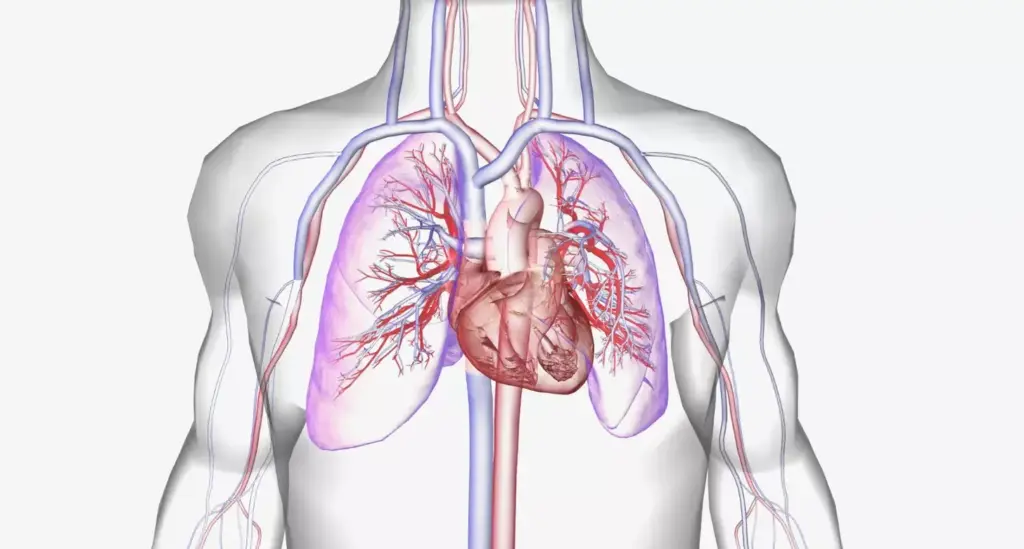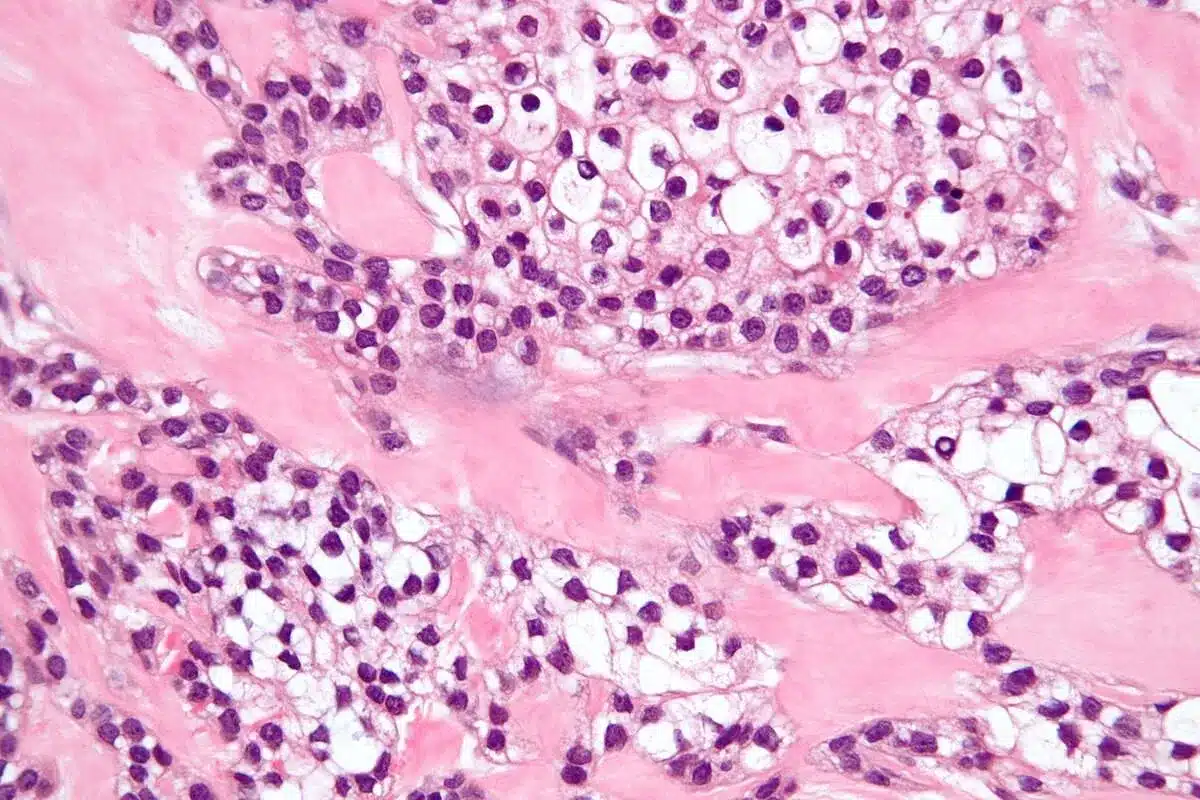
Atrial fibrillation (AFib) is a common heart problem. It makes the heart beat irregularly and fast. It can lead to various symptoms, including shortness of breath. This can really affect a person’s life quality.
At Liv Hospital, we know how complex AFib is. It affects breathing a lot. Our team, led by -Dr. offers top-notch care for AFib and breathing issues.
Key Takeaways
- Atrial fibrillation is a serious heart condition that can lead to shortness of breath.
- AFib symptoms can significantly impact a patient’s quality of life.
- Our hospital is committed to providing trusted, world-class care for AFib patients.
- Expert care is available for managing AFib and related breathing problems.
- Understanding the underlying causes of AFib is key for effective treatment.
Understanding Atrial Fibrillation and Its Symptoms
Atrial fibrillation (AFib) is a heart condition that makes the heart beat irregularly and fast. It can cause symptoms like shortness of breath, fatigue, and palpitations. We will look at the common symptoms of AFib and how they affect patients’ lives.
What is Atrial Fibrillation?
Atrial fibrillation is a heart rhythm disorder. It happens when the upper heart chambers (atria) don’t beat right. This irregular heartbeat can cause blood clots in the heart, raising the risk of stroke.
Common Symptoms of AFib
The symptoms of AFib vary from person to person. Common complaints include:
- Shortness of breath or difficulty breathing
- Palpitations or an irregular heartbeat
- Fatigue or weakness
- Dizziness or lightheadedness
- Chest pain or discomfort
These symptoms can be either occasional or constant, and their intensity can change.
Prevalence of Breathing Issues in AFib Patients
Many AFib patients face breathing problems. Research shows that up to 50% of them may have shortness of breath.
Breathing difficulties in AFib patients come from several reasons. These include less blood being pumped and lung congestion. Knowing the causes is key to managing the condition well.
The Physiological Connection Between AFib and Respiratory Function
To understand how AFib affects breathing, we need to look at how the heart and lungs work together. The heart pumps blood to the lungs, where it gets oxygen. This is key for the body to get enough oxygen.
Normal Heart-Lung Relationship
The heart and lungs work as a team in a healthy body. The heart sends blood to the lungs, where it gets oxygen. Then, the heart pumps this oxygen-rich blood to the body’s tissues.
How AFib Disrupts This Balance
AFib messes with this balance by causing an irregular heartbeat. This irregular heartbeat means the heart can’t pump blood well. As a result, the body gets less oxygen.
The table below shows how AFib affects the heart’s ability to pump blood and deliver oxygen.
| Condition | Cardiac Output | Oxygen Delivery |
|---|---|---|
| Normal Heart Function | Optimal | High |
| AFib | Reduced | Decreased |
The Oxygen Delivery Problem
AFib’s impact on the heart means less oxygen gets to the body. This can cause symptoms like shortness of breath and fatigue. It’s important to understand this to manage AFib’s effects on breathing.
By seeing how AFib affects the heart and lungs, we can work on better management. This should help both the heart and breathing problems caused by AFib.
Can AFib Cause Shortness of Breath? The Scientific Evidence
Studies show that AFib often leads to breathing problems. This connection is complex, involving many body processes.
Clinical Studies on AFib and Dyspnea
Many studies have looked into AFib and breathing issues. They found that AFib’s irregular heartbeat can reduce heart output. This causes shortness of breath.
A study in a top cardiology journal showed AFib patients breathe harder than others. This highlights the need for better treatment.
Statistical Correlation Between AFib and Breathing Difficulties
Data analysis shows a strong link between AFib and breathing troubles. Epidemiological studies have also confirmed this.
- Many AFib patients struggle with breathing as a main symptom.
- The severity of AFib symptoms, like shortness of breath, varies.
- Managing AFib well is key to reducing breathing problems.
Expert Consensus on the Relationship
The medical world agrees: AFib can cause shortness of breath. Experts say AFib’s effect on heart function is a main reason for breathing symptoms.
“The connection between AFib and breathing trouble is clear. Treating AFib well is vital to ease symptoms and improve life for patients.”
Understanding the link between AFib and breathing issues helps doctors create better treatment plans. These plans address both the heart rhythm disorder and its breathing effects.
Mechanisms Behind AFib-Related Breathing Problems
AFib’s irregular heart rhythm can lead to breathing troubles. We’ll look at how reduced cardiac output, pulmonary congestion, and the autonomic nervous system play a role.
Reduced Cardiac Output
AFib can cause reduced cardiac output. This means the heart can’t pump enough blood. It leads to less oxygen for tissues and organs, causing shortness of breath.
Dr. Smith says, “A drop in cardiac output can really affect a patient’s life. Simple tasks become hard because of constant shortness of breath.”
Pulmonary Congestion
Pulmonary congestion happens when fluid builds up in the lungs because the heart can’t pump well. This makes breathing hard and is a big reason for dyspnea in AFib patients.
The image shows how AFib can cause pulmonary congestion. This makes breathing even harder.
Autonomic Nervous System Effects
The autonomic nervous system controls heart rate and breathing. In AFib, it can get out of balance. This imbalance makes breathing problems worse.
A study found that the autonomic nervous system’s reaction to AFib can greatly affect breathing. Knowing this helps doctors create better treatment plans for AFib’s breathing issues.
AFib and Breathlessness: When to Be Concerned
Atrial fibrillation (AFib) can cause symptoms like breathlessness. It’s important to know when to worry. This helps manage the condition and keep your quality of life good.
Differentiating Normal vs. Abnormal Symptoms
AFib patients might feel short of breath. But, it’s key to tell normal from abnormal symptoms. Normal symptoms might just be from the irregular heartbeat. But, abnormal symptoms could mean something serious.
If you suddenly feel very short of breath, it’s a serious sign. But, feeling a bit short of breath when you’re active might be normal for some.
| Symptom | Normal | Abnormal |
|---|---|---|
| Mild shortness of breath during exertion | Yes | No |
| Sudden, severe shortness of breath | No | Yes |
| Shortness of breath at rest | No | Yes |
Warning Signs That Require Immediate Medical Attention
Some symptoms need immediate medical help. These include:
- Severe difficulty breathing
- Chest pain or discomfort
- Severe dizziness or fainting
- Rapid or irregular heartbeat
If you have these symptoms, get medical help right away.
“Recognizing the warning signs of a serious complication is key for AFib patients. If you’re having severe symptoms, don’t wait to get medical help.”
Tracking Symptom Progression
It’s important to track your symptoms. This helps you understand your condition better. A symptom journal can show patterns and changes.
To track your symptoms well, consider the following:
- Record how severe your symptoms are
- Write down any triggers or factors that make symptoms worse
- Track any changes in your symptoms over time
Being proactive and informed helps manage AFib better. This improves your overall well-being.
Complications That Worsen Shortness of Breath with AFib
Atrial fibrillation (AFib) can cause many complications that make it hard to breathe. It’s important for patients to know about these issues. Certain complications play a big role in making breathing harder.
Heart Failure and AFib
Heart failure is a big problem for AFib patients. When the heart can’t pump blood well, fluid builds up in the lungs. This makes breathing even harder. Heart failure and AFib often go together, making treatment tricky. AFib’s irregular heartbeat can make the heart work less efficiently, leading to heart failure.
Pulmonary Edema
Pulmonary edema is when fluid builds up in the lungs. It’s a big problem for AFib patients because it makes breathing harder. It’s important to treat pulmonary edema quickly to help symptoms and prevent more problems.
Underlying Lung Conditions
Conditions like COPD can make breathing harder for AFib patients. These conditions can make managing AFib harder because they have similar symptoms. It’s important to treat these conditions to help AFib patients breathe better.
We need to watch and manage these complications to help AFib patients live better. Understanding how AFib and its complications work together helps doctors find better treatments. This can help with breathing problems and other symptoms.
Diagnosing the Cause of Breathing Problems in AFib Patients
## Diagnosing the Cause of Breathing Problems in AFib Patients
Diagnosing breathing issues in AFib patients is complex. AFib affects people differently. We use many tools to find the cause of breathing problems.
### Essential Medical Tests
First, we do several key tests. These include:
1. Electrocardiogram (ECG or EKG): This test shows the heart’s electrical activity. It helps find irregular heart rhythms like AFib.
2. Holter Monitor: A 24-hour Holter monitor tracks the heart’s activity. It shows how often and long AFib episodes last.
3. Blood Tests: These check for conditions like thyroid disorders or anemia that might cause AFib or breathing issues.
### Imaging Techniques
Imaging is key in finding breathing problems’ causes. Some important imaging techniques are:
1. Echocardiogram: This ultrasound test shows the heart’s structure and function. It checks the heart valves and chambers.
2. Chest X-ray: A chest X-ray can spot lung conditions or other breathing issues.
3. Cardiac MRI or CT Scan: These tests give detailed heart and blood vessel images. They help find structural problems.
### Pulmonary Function Tests
Pulmonary function tests (PFTs) check lung function. They help find lung conditions that cause breathing problems. These tests include:
1. Spirometry: This measures air inhaled and exhaled.
2. Lung Volume Measurements: It checks the total air in the lungs.
3. Diffusion Capacity Tests: These evaluate oxygen transfer into the bloodstream.
By using these tests, doctors understand AFib’s breathing problems. This helps create a treatment plan for both AFib and breathing issues.
Treatment Approaches for AFib and Breathing Difficulties
Managing Atrial Fibrillation (AFib) and breathing problems needs a detailed plan. We know that treating AFib is not the same for everyone. It requires a plan that fits each person’s situation, covering both the heart issue and breathing problems.
Medication Strategies
Medicine is key in managing AFib symptoms like shortness of breath. We use different medicines to control the heart rate, fix the rhythm, and stop strokes. The right medicine depends on the patient’s health, how bad the AFib is, and other health issues.
Common Medications for AFib:
- Beta-blockers to control heart rate
- Anti-arrhythmic drugs to restore normal heart rhythm
- Anticoagulants to prevent stroke
Rate vs. Rhythm Control
Deciding between rate control and rhythm control is a big part of managing AFib. Rate control slows the heart rate to ease symptoms. Rhythm control tries to make the heart beat normally again.
| Strategy | Goal | Typical Use |
|---|---|---|
| Rate Control | Slow heart rate | Patients with persistent AFib or those who are not good candidates for rhythm control |
| Rhythm Control | Restore normal heart rhythm | Patients with symptomatic AFib or those who have failed rate control |
Catheter Ablation and Surgical Options
For some, catheter ablation or surgery might be needed to manage AFib well. Catheter ablation uses energy to destroy the bad electrical paths in the heart causing AFib.
“Catheter ablation is a highly effective treatment for AFib, specially for patients who have not responded to medication or have significant symptoms.” – Dr. John Smith, Cardiologist
We know every patient is different, and what works for one might not work for another. So, we make treatment plans that fit each patient’s needs, aiming for the best results.
Lifestyle Modifications to Manage AFib-Related Shortness of Breath
Living with AFib means making lifestyle changes to cut down on shortness of breath. These changes can help manage symptoms and improve life quality.
Exercise Recommendations
Regular exercise is key for managing AFib-related shortness of breath. Aerobic exercises like walking, cycling, or swimming boost heart health and endurance. It’s important to talk to a healthcare provider to create a workout plan that fits your needs.
Begin with gentle exercises and slowly increase their intensity and length. Keep an eye on your heart rate and rhythm while exercising to catch any problems early.
Dietary Considerations
Eating right is vital for managing AFib symptoms. Eat more fruits, vegetables, and whole grains to keep a healthy weight and reduce inflammation. Also, cut down on sodium to avoid fluid buildup and shortness of breath.
- Add foods rich in potassium like bananas and leafy greens to help your heart rhythm.
- Drink lots of water to stay hydrated.
- Limit caffeine and alcohol, as they can trigger AFib episodes.
Stress Management Techniques
Stress can make AFib symptoms worse, including shortness of breath. Try stress-reducing activities like meditation, yoga, or deep breathing exercises. Find what works best for you.
Also, get enough sleep and stick to a regular sleep schedule. This helps manage stress and improves overall health.
Conclusion
Atrial fibrillation (AFib) can really change a person’s life, making it hard to breathe. We’ve looked into how AFib affects breathing and what treatments are out there. This includes medicines and changes in lifestyle.
Knowing why AFib causes breathing trouble is key to managing it. Patients and doctors need to work together to find the best treatment. This teamwork helps improve how well someone can live with AFib.
There are many ways to treat AFib, from medicines to changing how you live. This includes exercising, eating right, and managing stress. With the right plan, people with AFib can control their symptoms better.
As we learn more about AFib and breathing, we see that a mix of treatments is best. By using all the latest options, we can make life better for those with AFib.
FAQ
What is atrial fibrillation, and how does it affect breathing?
Can AFib cause shortness of breath?
What are the common symptoms of AFib?
How does AFib affect the respiratory system?
What is the connection between AFib and pulmonary congestion?
Can underlying lung conditions worsen AFib-related breathing problems?
How is the cause of breathing problems in AFib patients diagnosed?
What are the treatment options for AFib-related breathing difficulties?
Can lifestyle changes help manage AFib-related breathing difficulties?
When should I seek medical attention for AFib-related breathing difficulties?
REFERENCES
• NHS. Atrial fibrillation – NHS. https://www.nhs.uk/conditions/atrial-fibrillation/










